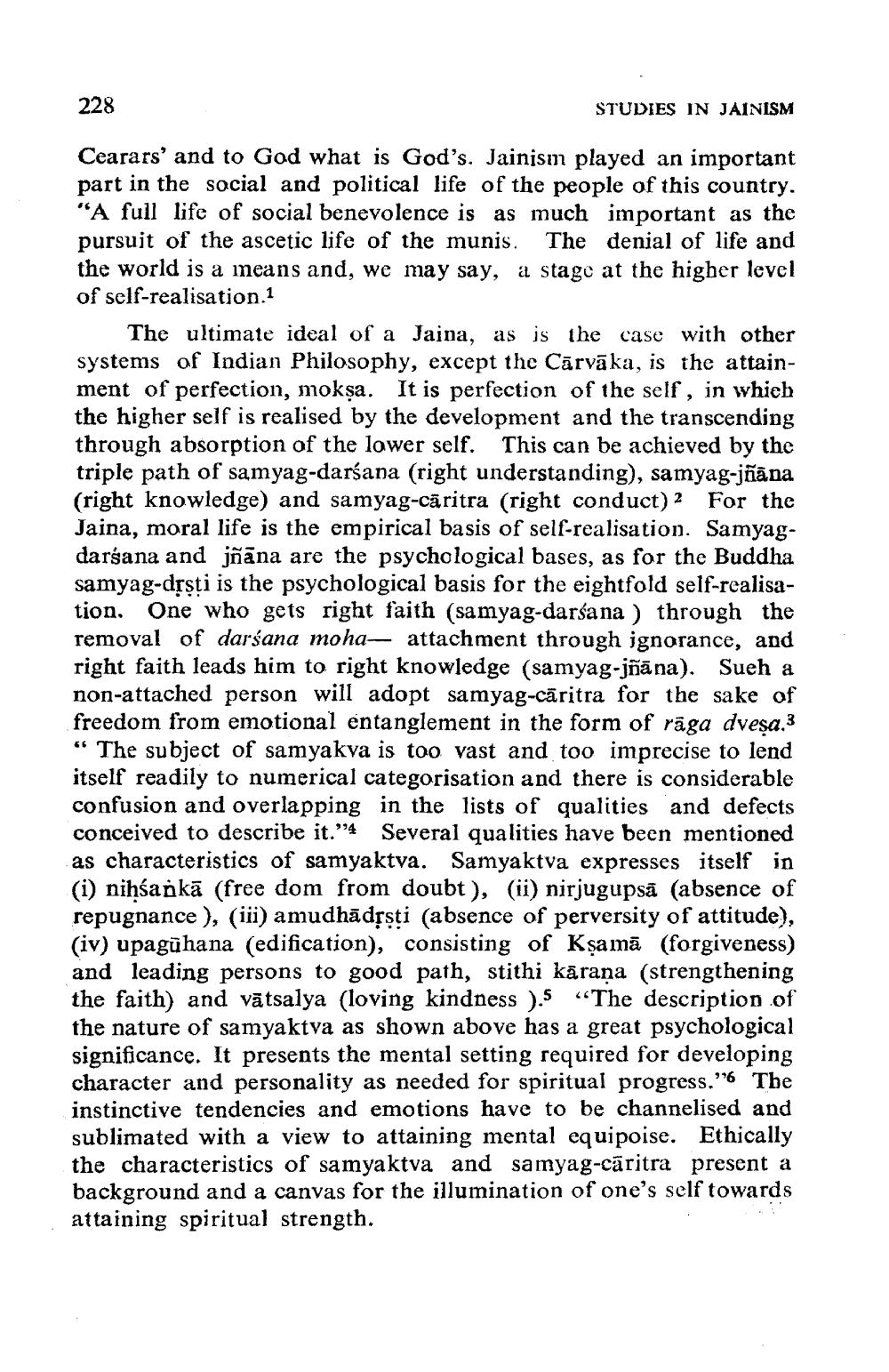________________
228
STUDIES IN JAINISM
Cearars' and to God what is God's. Jainism played an important part in the social and political life of the people of this country. "A full life of social benevolence is as much important as the pursuit of the ascetic life of the munis. The denial of life and the world is a means and, we may say, a stage at the higher level of self-realisation.1
The ultimate ideal of a Jaina, as is the case with other systems of Indian Philosophy, except the Carvāka, is the attainment of perfection, mokṣa. It is perfection of the self, in which the higher self is realised by the development and the transcending through absorption of the lower self. This can be achieved by the triple path of samyag-darśana (right understanding), samyag-jñāna (right knowledge) and samyag-caritra (right conduct) 2 For the Jaina, moral life is the empirical basis of self-realisation. Samyagdarśana and jñāna are the psychological bases, as for the Buddha samyag-dṛsti is the psychological basis for the eightfold self-realisation. One who gets right faith (samyag-darśana) through the removal of darśana moha- attachment through ignorance, and right faith leads him to right knowledge (samyag-jñāna). Such a non-attached person will adopt samyag-caritra for the sake of freedom from emotional entanglement in the form of raga dveṣa.3 "The subject of samyakva is too vast and too imprecise to lend itself readily to numerical categorisation and there is considerable confusion and overlapping in the lists of qualities and defects conceived to describe it."4 Several qualities have been mentioned as characteristics of samyaktva. Samyaktva expresses itself in (i) niḥśankā (free dom from doubt), (ii) nirjugupsa (absence of repugnance), (iii) amudhādṛṣṭi (absence of perversity of attitude), (iv) upaguhana (edification), consisting of Kṣamā (forgiveness) and leading persons to good path, stithi kāraṇa (strengthening the faith) and vātsalya (loving kindness ).5 "The description of the nature of samyaktva as shown above has a great psychological significance. It presents the mental setting required for developing character and personality as needed for spiritual progress.' "'6 The instinctive tendencies and emotions have to be channelised and sublimated with a view to attaining mental equipoise. Ethically the characteristics of samyaktva and samyag-caritra present a background and a canvas for the illumination of one's self towards attaining spiritual strength.




